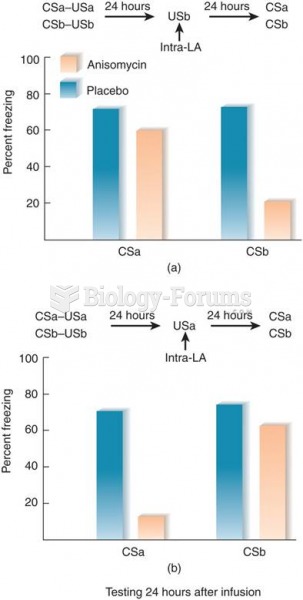This topic contains a solution. Click here to go to the answer
|
|
|
Did you know?
In 2012, nearly 24 milliion Americans, aged 12 and older, had abused an illicit drug, according to the National Institute on Drug Abuse (NIDA).
Did you know?
Human kidneys will clean about 1 million gallons of blood in an average lifetime.
Did you know?
People about to have surgery must tell their health care providers about all supplements they take.
Did you know?
The U.S. Pharmacopeia Medication Errors Reporting Program states that approximately 50% of all medication errors involve insulin.
Did you know?
The average human gut is home to perhaps 500 to 1,000 different species of bacteria.







